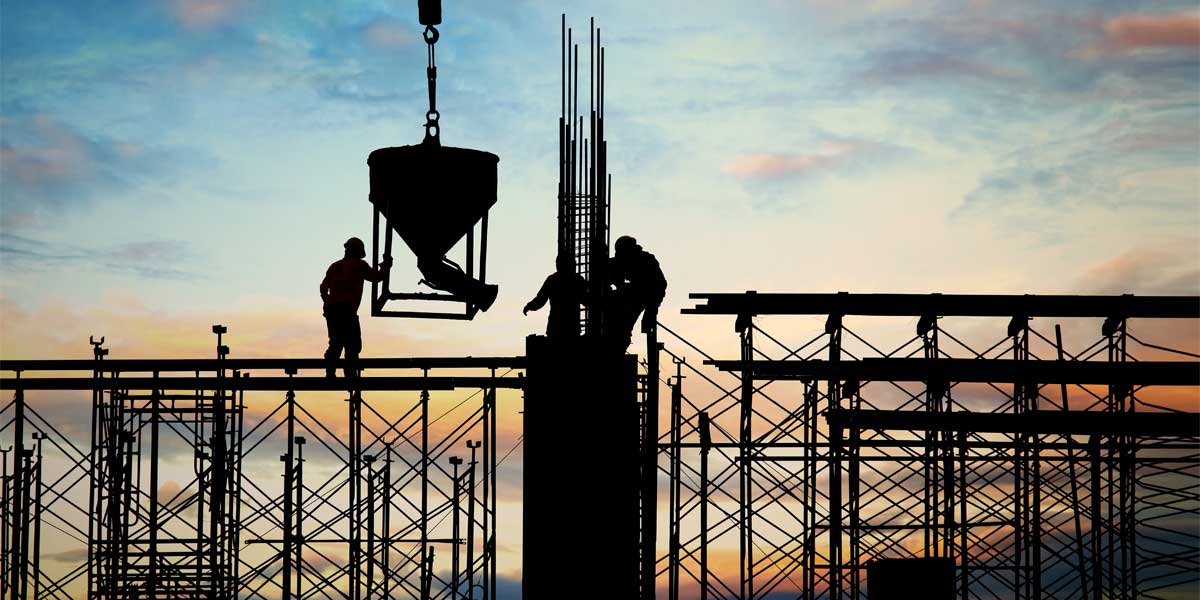

With an unprecedented price surge in steel, bitumen, cement and diesel prices, among other construction materials since the beginning of this year, CW connects with analysts, consultants, builders and contractors to get an overview of the impact on projects and company margins.
Anand Kulkarni, Director, CRISIL: “For contractors and developers, the current situation is out of their control. The little they can do is invest in negotiation and be upfront on seeking discounts. From the government’s side, it all depends on the macro-economic situation and the geopolitical scenario. It will be tough to control the crude impact and the commodity prices, which are largely linked to the global prices.”
SL Chanchlani, Executive Vice President and Chief Commercial Officer, ITD Cementation India: “Infrastructure should be incentivised to deal with such situations. For example, as escalation provisions do not cover the full price increase, the Government can help by reimbursing the actual cost of procurement based on the invoices and also by putting curbs on exports so that domestic demands are prioritised to reduce shortage. We have taken up this matter to the ministry level through CFI. If prices are not reduced or controlled on an urgent basis, the impact on the bottomline will increase for the current projects and there will be a price level increase for upcoming projects.”
Barun Pal Chowdhury, COO, Ashoka Buildcon: “It is important that the government considers regulating prices. One way is to also look at the delivery mechanism – instead of a fixed-cost pricing or lump sum, at least certain part of the pricing should be on a base-priced or an open-book pricing system, which we call as cost-plus contract. So whatever the cost impact is, it will be borne by the project and not by the contractor.”
Anuj Puri, Chairman, Anarock Group: “Project completion is definitely something developers will have to look into as RERA mandates them to finish projects on time. By not completing projects on time, they could face more challenges (of penalties). Also, if a few smaller and under-capitalised developers are facing difficulties, they may either look at consolidating and selling their unfinished projects to bigger, better-funded players or enter into joint development agreements with them.”
Rohit Poddar, Managing Director, Poddar Housing & Development: “Commodity price volatility may not be a one-time occurrence as supplies of numerous raw materials become scarcer. Developers must either absorb more costs, discover new ways to cut costs, or pass price hikes on to homebuyers who are already hesitant to spend. Various government initiatives like compensation on stamp duty and other relaxation measures will help to control the prices in the market.”
V Gopal, Executive Director-Projects & Planning, Prestige Group: “This shock in raw material prices and GST at 18 per cent is generally not welcoming to any developer. If the Government steps into any form of price regulation or gives any consideration for the developer while he is taxed, it will be a move welcomed by all.”
Aditya Khushwaha, CEO & Director, Axis ECorp: “The government has been offering home loans at a record low and that has helped in keeping the sentiments positive and sustaining demand. The government should also ensure that there is no hoarding or profiteering for these essential raw materials. It should also consider offering some relief via GST.”
Dhaval Ajmera, Director, Ajmera Realty and Infra: “Maharashtra can bring back stamp duty to 3 per cent. From April 1, metro cess and stamp duty are going to have an additional impact of 1 per cent in cities like Mumbai, Pune, Nagpur and other MMR regions. The price surge and increased stamp duty are only making the product more expensive. This needs to be paused for two years. GST is being charged at 5 per cent to customers on the end sale price and 18 per cent is what we pay for all the products that we buy. If there can be any input tax credit given, which is not there currently, it can mitigate prices because we will be able to adjust the GST being collected; this can reduce the cost a bit. Lastly, we should request the Government to halt all exports of at least cement and steel and supply them to local markets. This will probably fill up the demand and at the same time bring some control in prices.”
Shivam Bajaj, Founder & CEO, Avener Capital: “It will be interesting to see if developers are able to pass on the entire increase in costs of raw material to the end consumer or will have to take a hit on their margins.”
Ashish Khandelia, Founder, Certus Capital: “Given that the prices have been stagnant for a while and home loan rates are benign, it is possible to pass on some of the increase in cost, but in a gradual manner, otherwise we risk creating a short-term dent to the ongoing recovery.”
Vinit Dungarwal, Director, AMs Project Consultants: “CREDAI is already proposing a stop work and demanding that the closed down projects should get an extended date for its completion. The pandemic has already made things difficult for the industry. The developers are expecting some relief from the government and regulatory bodies to tide out from this double whammy.”
- Shriyal Sethumadhvan
Also Read:
Rise in material prices hit project execution and company margins
The domino effect of price rise on the construction industry